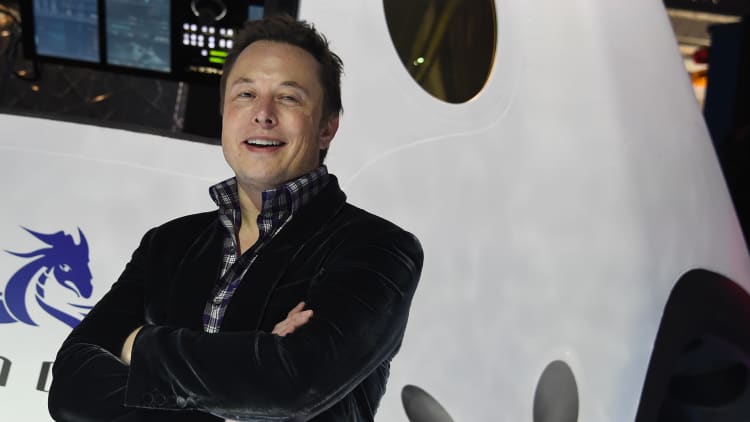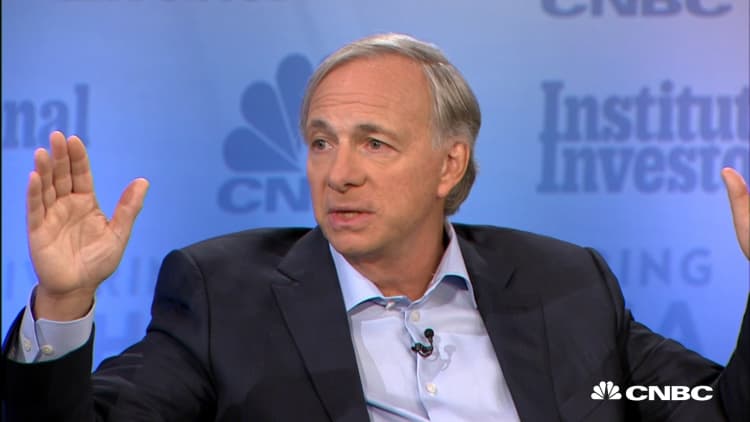Today, Bridgewater Associates is the biggest hedge fund in the world, managing nearly $160 billion. But it didn't start out that way. Ray Dalio, who founded the company in his two-bedroom New York apartment in 1975, had to learn how to be successful.
And often that meant figuring things out the hard way, as he details in his book, "Principles: Life & Work," out Sept. 19.
"These principles — not me — have been the basis of whatever success I've had," says Dalio at the Delivering Alpha conference, presented by CNBC and Institutional Investor. Dalio is worth about $17 billion, according to Forbes.
One of his most valuable pieces of gained wisdom was perfecting what he calls "radical transparency." "[I] learned the approach through painful mistakes ... and that brought the success," he says.
This particular schooling started in 1993, when three of Dalio's top confidants told him he was being too honest — and actually hurting the company. They sent Dalio a memo with tough criticism, according to CNBC's "Squawk Box" co-host and New York Times writer, Andrew Ross Sorkin, who interviewed Dalio at Delivering Alpha.
It reads, in part: "Ray sometimes says or does things to employees which makes them feel incompetent, unnecessary, humiliated, overwhelmed, belittled, pressed or otherwise bad. If he doesn't manage people well, growth will be stunted and we will all be affected."
That feedback stuck with Dalio.
"I was told that my process of being totally, radically truthful was hurting people's morale," he says. "Basically what they said to me is that whole total straightforwardness was causing people to be demoralized."
To resolve the situation, Dalio began to meet individually with his employees to reach a mutual agreement about how they would treat one another.
"How am I going to be with you? How should you be with me?," Dalio says he would ask. "In other words, should I tell you what I really think? Can you be free to tell me what you really think? Or should I not do that?"
He wanted to create a culture where employees could have "thoughtful disagreement," and exchange controversial ideas without creating problems.
His "radical transparency" is still not without controversy. Last year, The New York Times reported an employee's complaint that the company is like a "cauldron of fear and intimidation."
But, Dalio applies the "radical transparency" theory to his own behaviors as well. In a presentation at TED2017, Dalio shared a harshly critical email that an employee sent him after a meeting.
Here's the email from Jim Haskel:
"Ray - you deserve a "D-" for your performance today in the meeting ... you did not prepare at all because there is no way you could have and been that disorganized. In the future, I/we would ask you to take some time and prepare and maybe even I should come up and start talking to you to get you warmed up or something but we can't let this happen again. If you in any way think my view is wrong, please ask the others or we can talk about it."
Rather than being offended, Dalio says the email exemplified the idea that he wanted his employees to speak up.
"In order to be successful, we have to have independent thinkers — so independent that they'll bet against the consensus," he says at Delivering Alpha. And to do that, "You have to put your honest thoughts on the table." Then, the best ideas rise to the top.
It may not always be easy or perfect, but Dalio says the technique works for Bridgewater: "We beat the biggest institutions in the world because of an idea meritocracy."
Don't miss: Why hedge fund titan Ray Dalio says you shouldn't pull punches when you criticize your boss
Like this story? Like CNBC Make It on Facebook.




